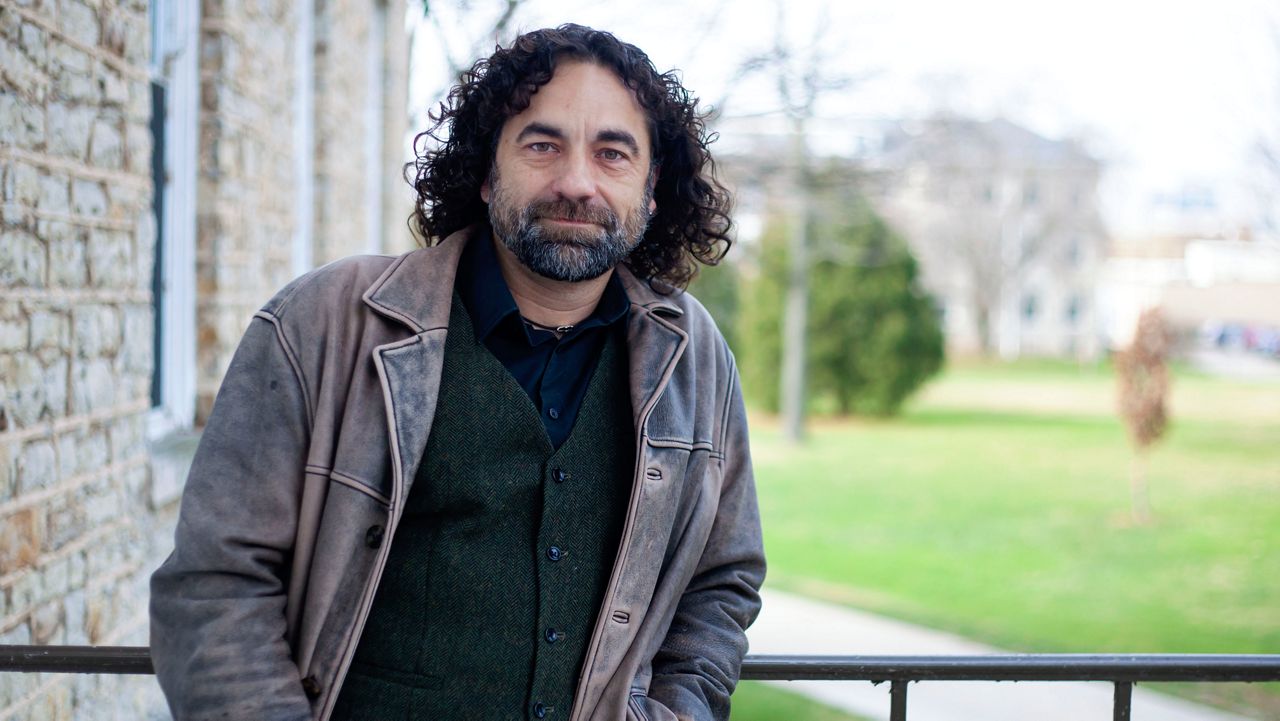APPLETON, Wis. — Ever stop to think why, when you leave almost any commercial building, it has a panic bar? Or why revolving doors are flanked by outward opening doors?
Did you know a hurricane helped ensure victory in the American Revolution? Or another hurricane likely led to the Shakespearean play “The Tempest.”
The common thread between all these events is disasters.
“Disasters provide this great wedge into the historical past where you can kind of pry open the manhole cover and see what day-to-day life was like,” said Jake Frederick, a Lawrence University history professor who teaches “Disasters That Made the Americas.”
“People don’t tend to write about when things are normal. They don’t leave records about that. But they do tend to write about when things go haywire, and life gets disrupted.”
Acute events — earthquakes, wildfires, hurricanes — all are disasters, but …
“What makes a disaster a disaster is rarely just like the acute disturbance itself,” said Frederick, who says it takes a decade after a disaster to learn from it. “It’s what happens afterward. Was the rescue effort sufficient? Or did the disaster reveal a lot of other problems that had existed in place, but just weren’t past the threshold of being tolerable until the disaster exposed them?”
Ideally, these flaws are addressed, and steps are taken to prevent them from happening again. To repeat, ideally.
Take the Western United States and the persistence of building homes in harm’s way.
“There is the question that some would raise, ‘Well, maybe we shouldn’t be building our homes in wildland-urban interface in quite the same degree that we have been’” said Frederick, who used to be a wildfire firefighter before graduate school. “We’ve been doing it like crazy over the last 30 years. This is an area that catches fire. So often it doesn’t work."
“But if we continue to be vulnerable to the same kinds of disasters, they keep trying to teach us those lessons. It’s not often the first time that the lesson is taught that we pick it up, though.”
Aside from stubbornness, one roadblock that has developed is the idea of disaster preparedness and the resources you’re willing to commit.
“It can be really hard to see a tangible outcome, because if you’re very successful, then you have negative evidence, like a horrible thing didn’t happen,” Frederick said. “You know, if this building catches fire and everybody manages to evacuate, there isn’t going to be a story about everything went well because of sprinklers in the ceiling and outward opening doors with panic bars. So, in some ways, if you’re successful in the planning, you don’t have a thing that reinforces how successful that planning was."
“As a consequence, it’s often hard to justify to people, ‘This is why we have to put XYZ safety measures into place.’ Because they’re not seeing the outcome; you’re doing all this work to make sure that something doesn’t happen. And it’s pretty hard to use the thing that didn’t happen as the justification for why somebody’s going to spend money on it.”
Which brings us to climate change. Correcting it will require great personal sacrifice, just one of the reasons it’s a hard sell.
“It involves essentially massive inconvenience,” Frederick said. “I would rather drive my car to work than ride my bike to work. I like to keep my house at the temperature I want. And it’s extremely difficult to pinpoint any particular event to the consequence of climate change. It’s just the frequency and the intensity of these things are becoming much more common."
“It’s really hard to sell this argument that, well, you’ve really got to switch to electric vehicles, so you don’t have a typhoon in the Philippines. It’s really hard to sell that idea to people where can they look and say, ‘Ah, I did this thing. And here’s the clear, positive effect that comes from it.’”
Hannah Frank, a Lawrence senior, said the knock-on effect of disasters is fascinating. But she said the class has also provided her with a new perspective.
“There are always horrible things happening,” she said. “And I think they deserve more attention than they get. Or maybe they deserve a different kind of attention."
“It’s going to be a year from now when people are going to need the most help and no one cares anymore, because new has moved on to something different.”
It’s no secret we often have the attention span of a gnat.
“You get implored to donate to Red Cross or whatever,” Frank said. “And then a month or two months later, everyone forgets about it and moves on. I think that’s sort of the wrong way of looking at disasters. So, I think this course helps you think about things in a more productive way than just, click here, give $1 and pat yourself on the back and forget about it.”
A previous version of this story misstated Jake Frederick's former job title. This story has been edited to reflect the correction. (March 1, 2023)
Story idea? You can reach Mike Woods at 920-246-6321 or at: michael.t.woods1@charter.com



